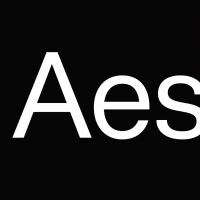Sans-Serif For Text

Michael Jarboe
Posts: 265
Does anyone have any particular sans-serif text faces that they think are great for reading?
I've seen Scala Sans in print before and thought it worked really well. I know I'm generalizing here, but I've looked at other sans by Frutiger, as well as Unica for a recent project and they just didn't work in comparison to other serif choices. It makes me think that I'll always lean towards choosing a serif text face for mid to longform typesetting.
Maybe it's a bias in which I feel that serifs bring a more sophisticated sensibility to the printed word that is not achieved by sans? I'm sure this is all very subjective and dependent on context, but I just wanted to get some other designers thoughts on this.
I've seen Scala Sans in print before and thought it worked really well. I know I'm generalizing here, but I've looked at other sans by Frutiger, as well as Unica for a recent project and they just didn't work in comparison to other serif choices. It makes me think that I'll always lean towards choosing a serif text face for mid to longform typesetting.
Maybe it's a bias in which I feel that serifs bring a more sophisticated sensibility to the printed word that is not achieved by sans? I'm sure this is all very subjective and dependent on context, but I just wanted to get some other designers thoughts on this.
Tagged:
0
Comments
-
I can think of Avenir (also by Frutiger) as a great one for reading. I've used it for small texts in prints & I think it works very well if you are concerned about small sizes.1
-
In the Typophile days, I compiled a list of Reading Sans Serifs, featuringa couple of diverse non-grotesque, rather humanist sans serif typefaces that could possibly be used in books – even though I won’t unreservedly recommend all of them for novels.Addison Hall had made another list with contemporary sans serifs.
And: Of course, some of them rather are ‘some-serifs’, or ‘stressed sans-serifs’, or ‘serifless romans’ …
There have been quite some additions since 2005/2008, but I hope it’s still a helpful start.
2 -
I think you're probably better off looking for humanist sans-serifs than geometrics or grotesques, which have more closed counters usually. My own Proza was made with great legibility in mind, but of course others have also achieved this.3
-
A “sans-serif text face” doesn’t mean much.
That’s like saying a leather foot shoe.
All alphabetic typefaces are potentially “great for reading”.
It’s how they’re chosen and set for a particular document that’s significant.
nb, “text” has a specific typographic meaning (think “text” as Unicode strings, as opposed to graphics files), “text faces” is an indiscriminate, vernacular usage, like calling typefaces fonts, because all faces with alphabets are text faces (as opposed to symbol faces).
0 -
To me, the phrase “text face” tells me it is intended for body text at typical body text sizes, and probably lots of it. I am curious if other type designers share either Nick’s reaction, or mine?3
-
Text seems to be a short form of "running text" implying continuous reading as opposed to small clusters of text.1
-
I’m aware that “text” is generally understood to mean “body text” or “running text” for “immersive” reading for which “book faces” are preferred, but now that we live in a post-Unicode world in which we observe a distinction between characters, letters and glyphs, and in which sans faces have displaced serifed faces in many traditional “text” usages, isn’t it time we moved on from the old terminology and assumptions about readability?
0 -
Nick, I never bought into the long-held idea that serif faces read better than Sans for most people. I have not seen a study that compares sans that are better reading than Helvetica.0
-
Avenir I would also second and would say it's to be the font to replace Helvetica (terms of public usage). Admired it's beauty and theory behind it's construction.
When I used to sign on at the Jobcentre my only joy was looking at New Transport by A2 Type which I say worked well in digital and print ephemera.
Neuzeit Office I would suggest to have a look at.
As those listed above might not have what you are looking compared to Scala Sans, as Scala Sans personally to me, seems to have a comfortable readability with it's bigger apertures and counters. (correct me if I'm wrong)
Quadraat Sans might be an option.
0
Categories
- All Categories
- 46 Introductions
- 3.9K Typeface Design
- 489 Type Design Critiques
- 567 Type Design Software
- 1.1K Type Design Technique & Theory
- 662 Type Business
- 867 Font Technology
- 29 Punchcutting
- 523 Typography
- 120 Type Education
- 325 Type History
- 78 Type Resources
- 112 Lettering and Calligraphy
- 33 Lettering Critiques
- 79 Lettering Technique & Theory
- 563 Announcements
- 94 Events
- 116 Job Postings
- 170 Type Releases
- 182 Miscellaneous News
- 277 About TypeDrawers
- 55 TypeDrawers Announcements
- 120 Suggestions and Bug Reports






